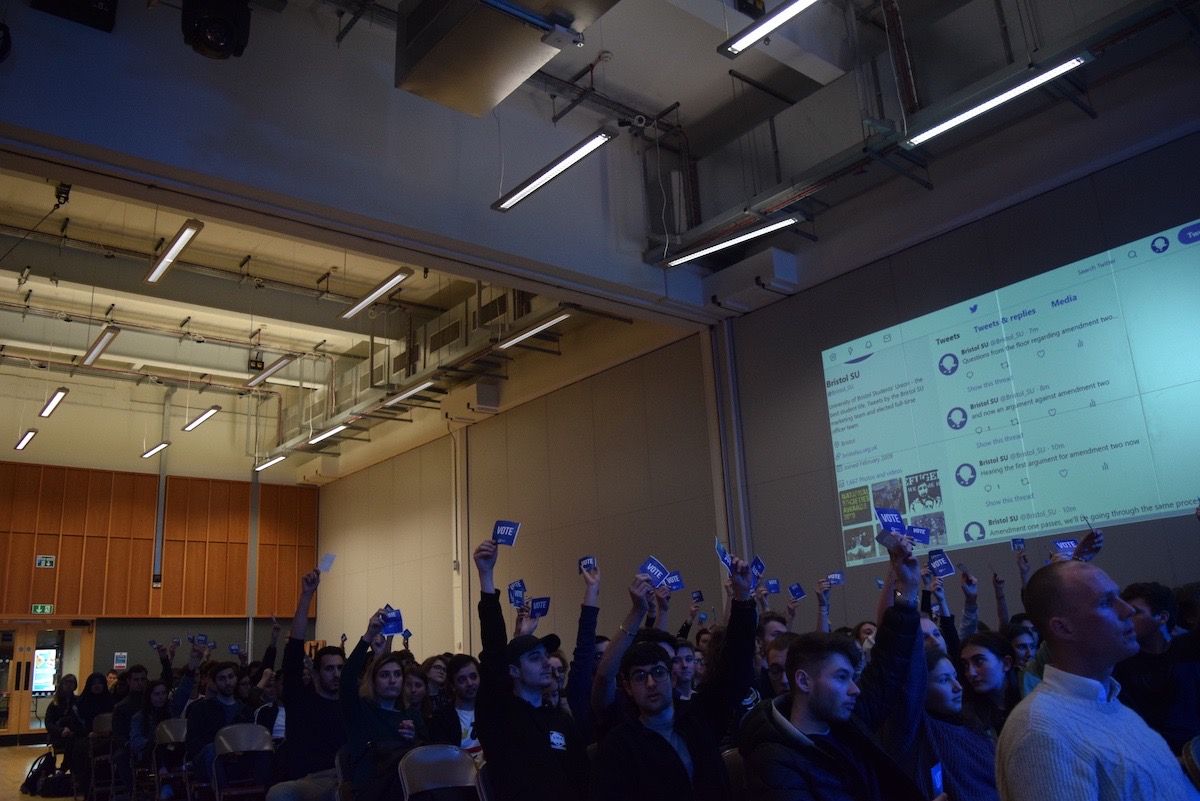By Lowri Lewis, Opinion Columnist
There are five times as many private school students at the University of Bristol as there are in the general population. They’re not five times as deserving, or five times as intelligent as those of us from state schools. So why are we ok with the fact that admissions data suggests they are?
The rejection of the motion to introduce an admissions cap for private school students at the AMM this week is a demonstration of the worrying belief amongst students here that the admissions process that got us here is impartial. But admissions to Bristol University aren’t exactly the result of a meritocracy.
You need only look at the disparity in offer rates between BAME and white students, for example, to know that they are anything but fair. The irony of the fact that those arguing against the admissions cap did so because of what they considered to be discriminatory practice would be laughable if it wasn’t so alarming.
There is some truth to their argument - it did manage to convince the student population to vote against the cap, after all, so it can’t have been founded entirely on lies. The financial situation we are born into is indeed completely out of our control.
Students that went to private school will readily admit that for them, this lottery of birth resulted in them being given an advantage when it came to their education. The idea that this is immoral, however, is something that not even some state school students are ready to admit yet.
Whether private schools should be allowed to exist is a whole different debate, but seeing as most of us are willing to accept the status quo on this matter, it’s unsurprising that this motion wasn’t passed. If it’s acceptable that some receive a better education than others, it’s logical that this unfair advantage will follow them to University.
University is a microcosm of our elitist society
During the AMM itself, it became clear that some Bristol students are more than willing to accept the status quo - the argument was put forward that since this is a systemic issue, it’s not our University’s responsibility to solve it. It’s more than disappointing to know that we’re still at a point where people genuinely believe that institutions as large as the University of Bristol shouldn’t do anything towards fighting systemic issues.
One perk of this motion’s failure to pass is that state school students are going to remain well prepared for what might otherwise be a shocking realisation about our chances of getting into certain areas of work upon graduation. If 36% of our peers at Uni went to private school, it won’t be such a surprise that 44% of British politicians did too.
University is a microcosm of our elitist society, where state school students like myself know that to aim for our dream job is to aim for disappointment. Knowing that a majority of students at the University of Bristol do not think that radical change needs to be made is more than disappointing.
Bristol ‘Kill The Bill’ protest turns violent as protesters set fire to police vehicle
Opinion | Social inclusion is still a problem at the university
Especially considering that those that voted were made aware by the motion proposer that the University of Bristol’s widening participation schemes, in place for the past 13 years, have failed to prevent us from being 113 out of 116 Universities for social inclusion in 2020.
We must accept, of course, that this is what Bristol students want. That any change in the chances of state school applicants getting in to this University will have to be at a snail’s pace.
The student that proposed the motion admitted that part of his intention was simply to start a conversation. In this way, something has certainly been achieved. The admissions cap would have been the first of its kind. And this won’t be the last we hear about it.
Featured Image: Epigram / Tom Taylor
Do you think the admissions cap motion should have been passed? Let us know!








